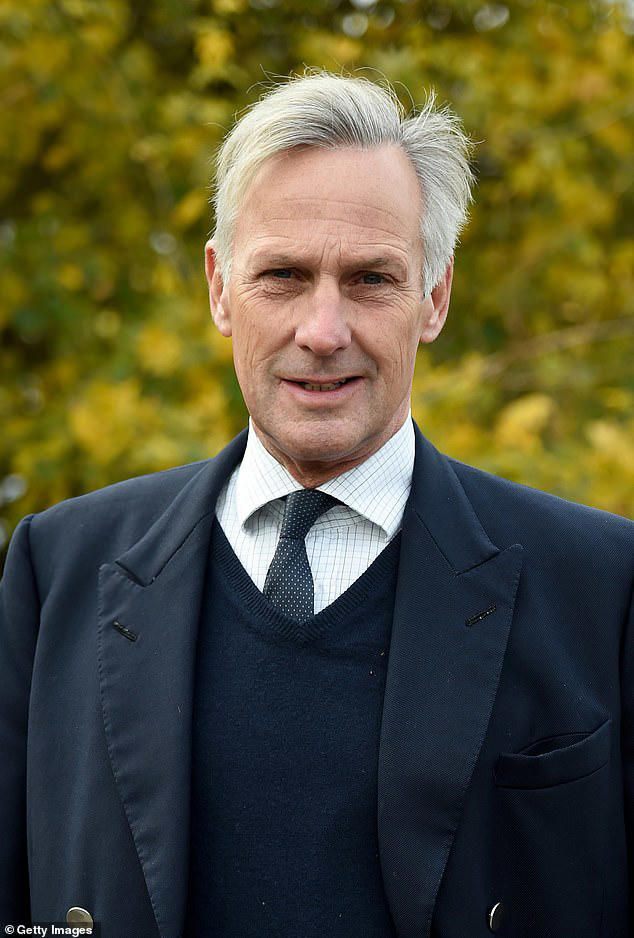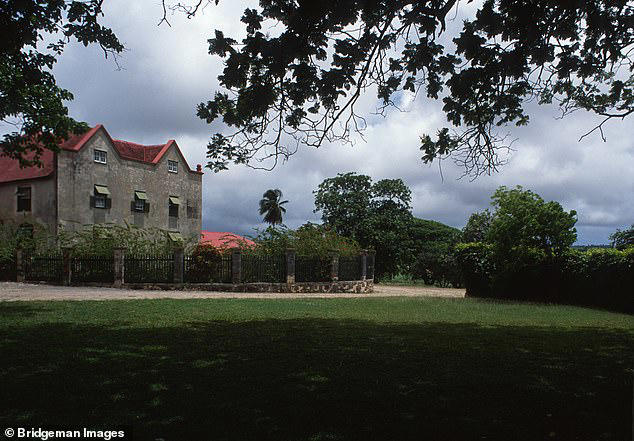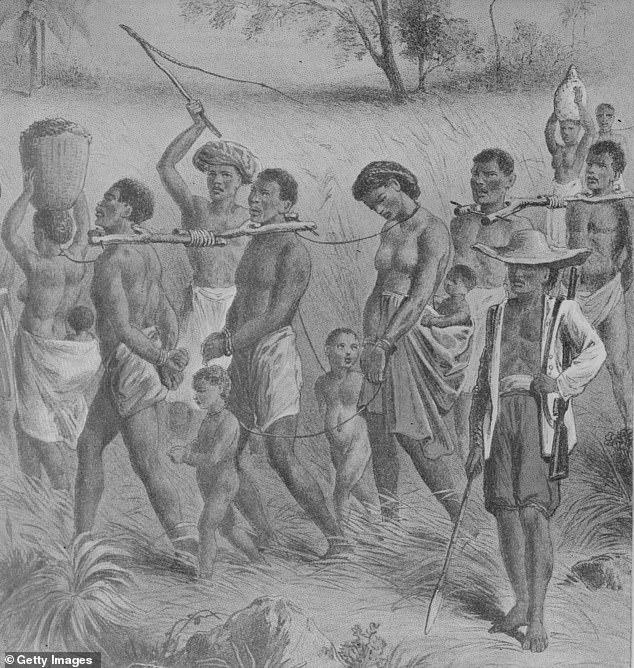Richard Drax to earn millions from sale of Barbados slave plantation
![]()
![]()
![]()
![]()
![]()
![]()
![]()
![]()
Richard Drax to earn millions from sale of Barbados slave plantation
- Politician owns a 250-hectare (617-acre) sugar plantation on the island
- Drax family played major role in development of sugar and slavery across region
Tory MP Richard Drax is set to earn millions from the sale of part of his family's former slave plantation on Barbados so the land can be used for housing.
The politician owns a 250-hectare (617-acre) sugar plantation on the Caribbean island that was built by his ancestors in the 17th century.
The Drax family pioneered the plantation system and played a major role in the development of sugar and slavery across the Caribbean and United States.
Historians estimate as many as 30,000 slaves lived and died on the Drax estate in the 200 years between the plantation's establishment in the 1620s and the abolition of slavery in 1833.
Mr Drax, 66, has faced calls to pay reparations to Barbados but previously insisted that although his family's past was 'deeply, deeply regrettable', no one can be held responsible 'for what happened many hundreds of years ago.'
Now he is reportedly set to earn around £3million as the island's government buys 21 hectares - around 15 football pitches - of his land so homes can be built on it.


Critics including Barbados' poet laureate Esther Phillips hit out at the move.
She told The Guardian that the deal is an 'atrocity' and added: 'He should be giving us this land as reparations, not further enriching himself … at the expense of Barbadians. As Barbadians, we must speak out against this.'F
Barbadian MP Trevor Prescod, chair of the island's reparations taskforce, said: 'What a bad example this is. Reparations and Drax Hall are now top of the global agenda. How do we explain this to the world?
'The government should not be entering into any [commercial] relationship with Richard Drax, especially as we are negotiating with him regarding reparations.'
Ms Mottley's spokesperson said the purchase of Mr Drax's land is not linked to reparations and that the government 'constantly acquires land through this process.'
Ms Mottley has promised to build 10,000 homes to meet demand on the island, which is grappling with 20,000 applications for housing.
A valuation surveyor said the market value of agricultural land that is set to be used for housing would be around Bds$150,000 (£60,000) per acre.
That means Mr Drax could net around £3.2million.
In 2022, Barbados demanded that Mr Drax pay reparations and he was reportedly threatened with legal action in the international courts by politicians on the island.

He did have a private meeting with the country's prime minister Mia Mottley about the issue.
The heart of the politician's estate is the 17th century Drax Hall, which some campaigners want to turn into an Afro-centric museum.
After English sailors settled on Barbados in 1627, it became Britain's second colony – after Virginia had been founded in North America.
Barbados's own parliament – which was modelled on that of its colonial master back in England – was established in 1639, making it the third oldest in the entire Commonwealth.
It is estimated that between 1627 to 1807, some 387,000 Africans were sent to the island against their will and the country shifted from having a majority white population of voluntary settlers to a majority black population.
At the end of 2021, Barbadians opted to make the country a republic, an act which removed the late Queen Elizabeth as their head of state.
The move came more than 50 years after Barbados became fully independent in 1966.
That year, Her Majesty and Prince Philip were greeted by rapturous crowds as they touched down in Bridgetown, Barbados's capital, for the start of a five-week tour of the Caribbean.
However, in recent years Barbados has embraced a reported $490million in funding from China for new developments.
Articles-Popular
- Main
- Contact Us
- Planetary Existences-2
- Planetary Existences
- TWO REVELATIONS-2
- The Two Revelations
- Jeffery Epstein - The Saga - 9
- Jeffery Epstein - The Saga - 8
- Jeffery Epstein - The Saga - 10
- Universality of Initiation
- The Participants In The Mysteries-2
- The Path Of Initiation
- Initiation and the Devas
- The Fourth Way - Study of Oneself - P.D.Ouspensky
- Impeachment Investigators Subpoena White House - Ukraine
- Discipleship - Group Relations - 2
- The Probationary Path - 2
- The Final Initiation
- The Succeeding Two Initiations
- The Participants In The Mysteries
- Discipleship - Group Relationships
- Discipleship
- Jeffery Epstein - The Saga - 7
- The Fourth Way - Wrong Functions - P.D Ouspensky
- Statues are a mark of honour. Like Edward Colston, Cecil Rhodes and Oliver Cromwell have to go
- Jeffery Epstein - The Saga - 6
Articles - Latest
- Blinken to Hamas: Accept Israel's 'extraordinarily generous' Gaza truce proposal
- 'Loan shark', 83, ordered to pay back over £173,000
- Thai court adds jail time for rights lawyer who urged monarchy reform
- Rapist jailed a decade after campaign of abuse against London woman
- Former SNP council leader appears in court charged with sexual offences
- Former mayor of Winchester smothered elderly mother with cushion, court told
- Spanish PM decides not to quit despite corruption claims against wife
- Scotland's Yousaf set to resign as first minister, UK media say
- Harvey Weinstein's 2020 rape conviction overturned
- Jamaica on track to remove King Charles as head of state by 2025, minister says
- Case against Sir Jeffrey Donaldson to be heard in court
- Rwanda needs migrants because of the genocide, says Home Secretary
- Will a state supreme court challenge end California’s ‘racist’ record-setting death row for good?
- Sweden aims to prepare critical infrastructure for potential war with Russia - Bloomberg
- Russia detains deputy of defence minister Shoigu for corruption




